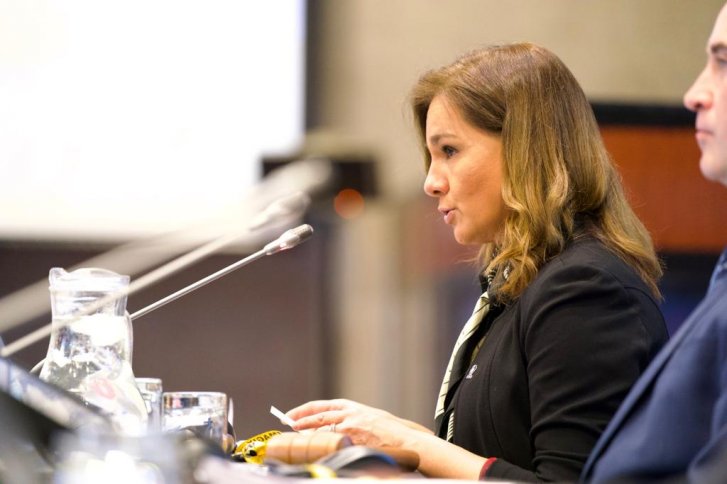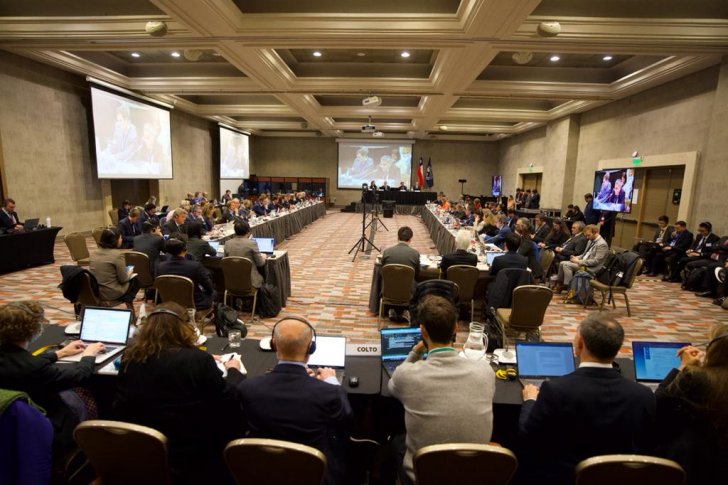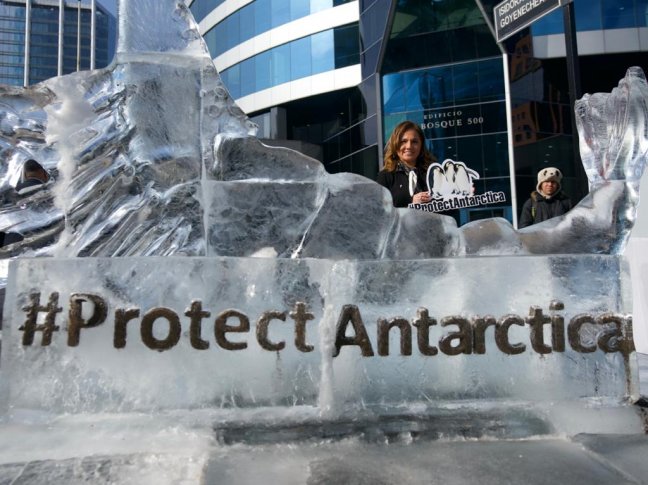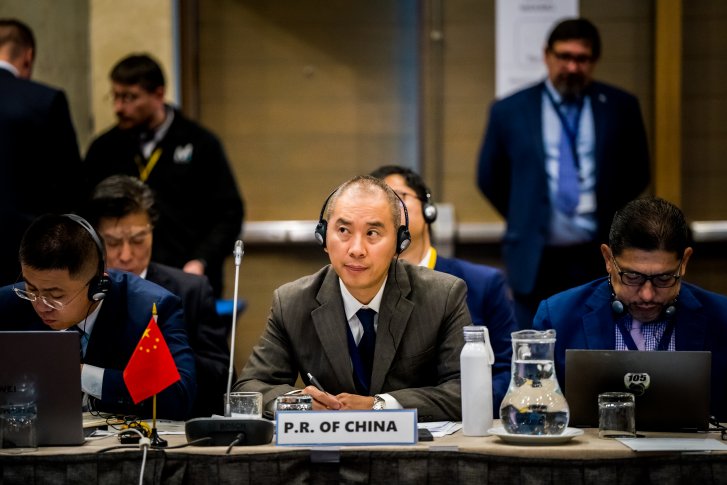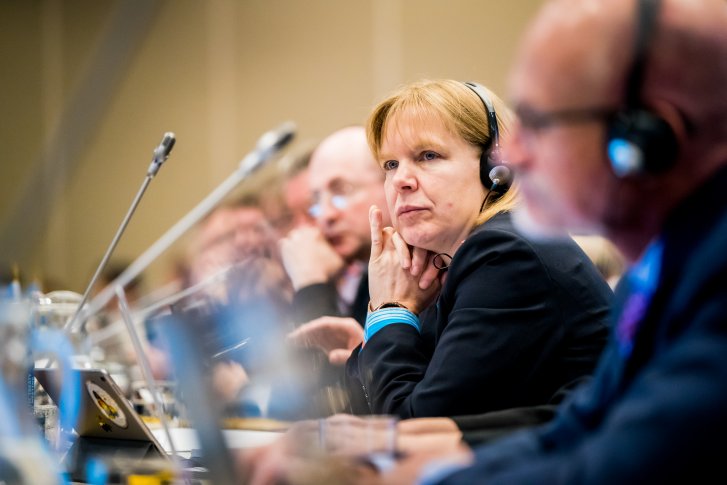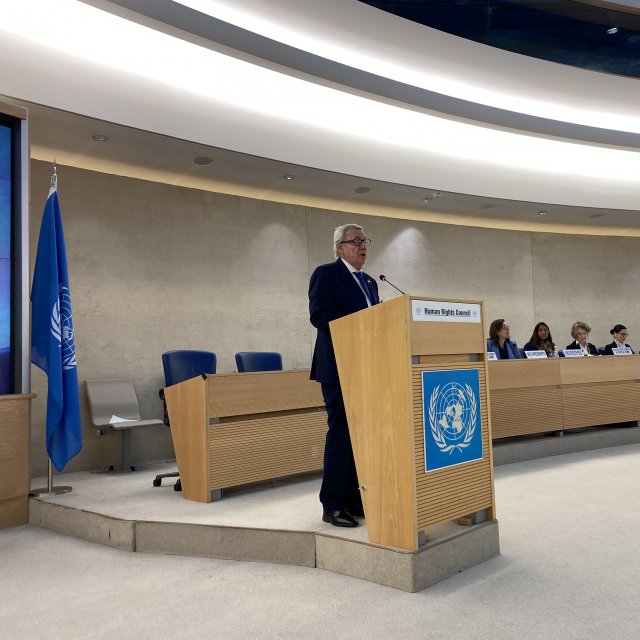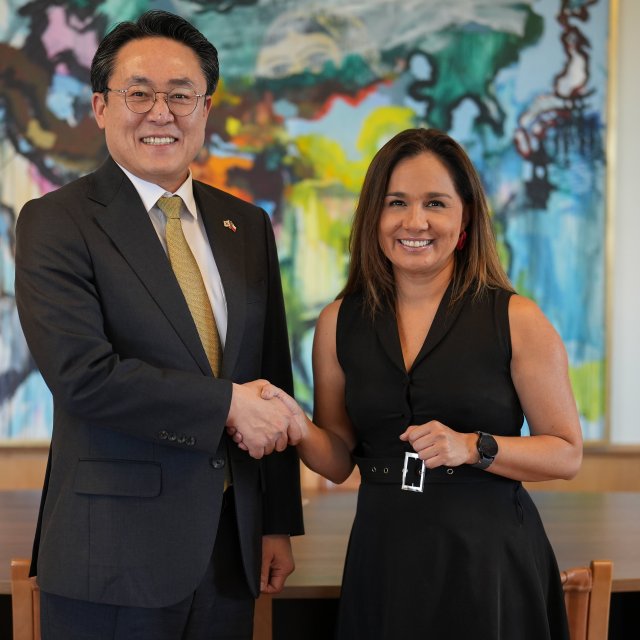 Thursday, February 27th 2025
Undersecretary meets with the Minister of Oceans and Fisheries of the Republic of Korea
Thursday, February 27th 2025
Undersecretary meets with the Minister of Oceans and Fisheries of the Republic of Korea
Acting Minister Gloria de la Fuente calls for increased efforts to move towards a system of Marine Protected Areas in Antarctica
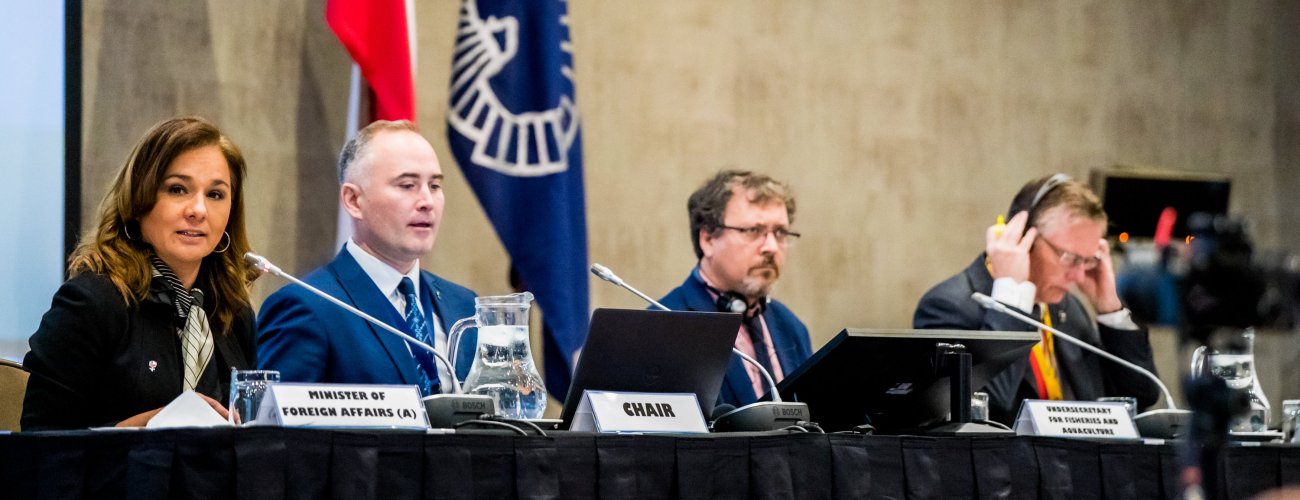
For the first time in Chile, the Commission for the Conservation of Antarctic Marine Living Resources (CCAMLR) is holding a special meeting, which was inaugurated today by the Acting Minister of Foreign Affairs, Gloria de la Fuente.
"Chile has a dual vocation. It is an oceanic country and it is also an Antarctic country," said the Acting Foreign Affairs Minister, stressing that the meeting is "an opportunity to continue to show the capacity of the institutions of the Antarctic Treaty System to function, to move forward and to find agreements on urgent and priority matters.
The purpose of the meeting is to establish a roadmap for further progress towards a system of Marine Protected Areas (MPAs). In this sense, the minister (a) pointed out that "the Santiago meeting could be a turning point in the efforts carried out by CCAMLR to establish a representative system of marine protected areas. We have spent years without making any substantial progress in this area, and it is time to leave this immobility behind.
I call on them to intensify their efforts. We believe that through sincere dialogue, it is possible to build the agreements that we need to reach today in Santiago.," she added.".
In this context, she stressed that only international collaboration will make possible to address the challenges facing the planet, such as combating climate change, the loss of biodiversity, and environmental pollution, among other priority tasks, decisive action with a holistic view is required, where the study of the Antarctic continent is particularly relevant..
"Science has shown us that, in order to effectively protect Antarctica, we need to take additional steps. It is imperative to create adaptive and resilient spaces for ecosystems, processes, habitats, and species in order to increase their chances of adapting and responding positively to climate change”, she said.
CCAMLR is a consensus-based organisation with 27 members - 26 countries and the European Union - which has played an important role in international collaboration on conservation issues; combating illegal, unreported and unregulated fishing; reducing incidental mortality of seabirds; and the sustainable management of fisheries through a range of measures, respecting the criteria of rational use of Antarctic marine living resources.
Related articles
 Thursday, February 27th 2025
Undersecretary meets with the Minister of Oceans and Fisheries of the Republic of Korea
Thursday, February 27th 2025
Undersecretary meets with the Minister of Oceans and Fisheries of the Republic of Korea
 Monday, February 24th 2025
Minister van Klaveren reaffirms Chile's commitment to human rights and gender equality
Monday, February 24th 2025
Minister van Klaveren reaffirms Chile's commitment to human rights and gender equality








